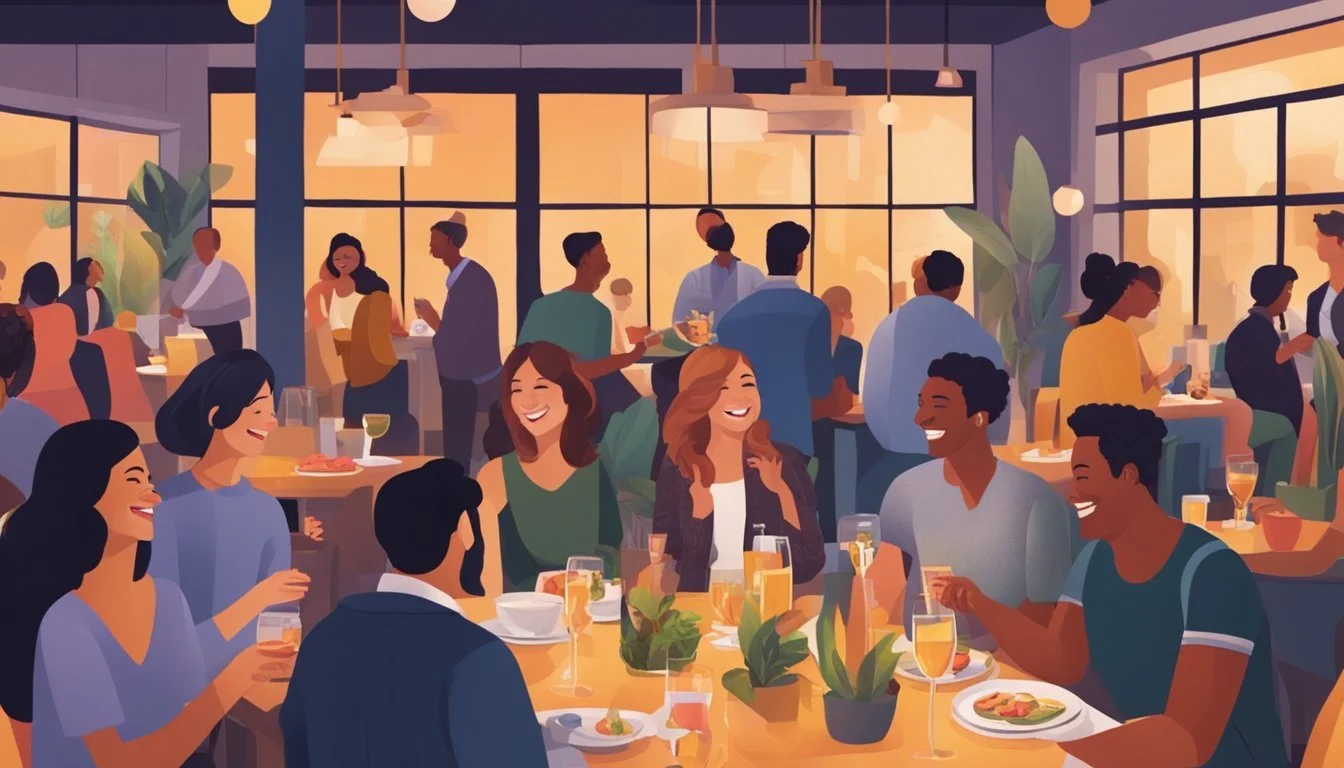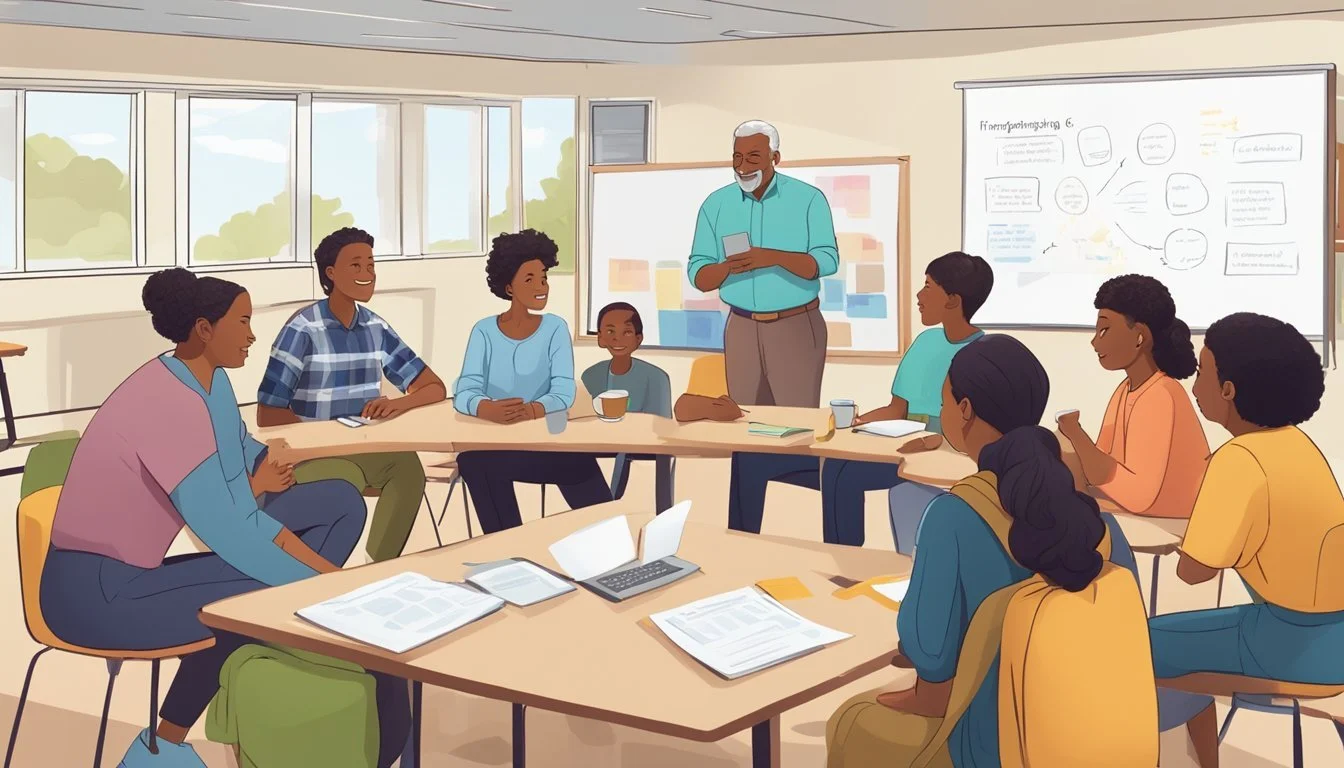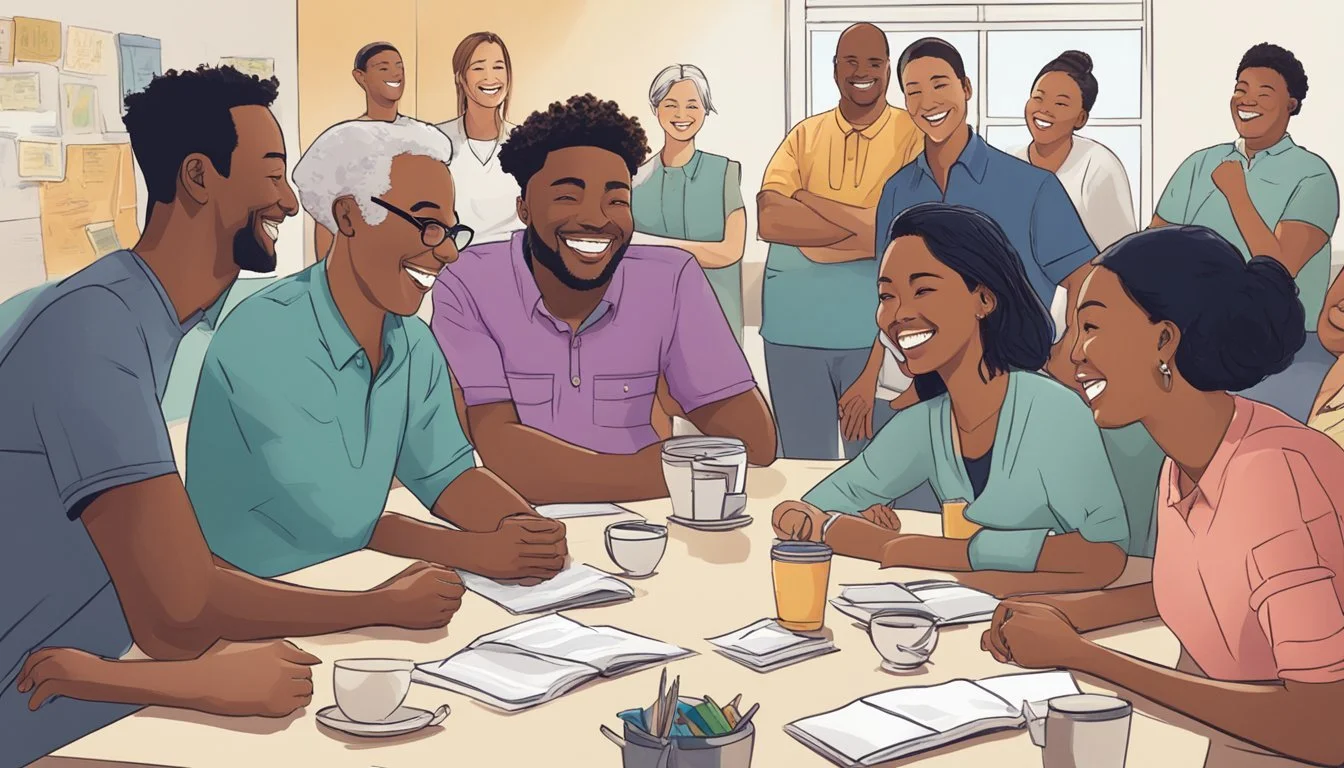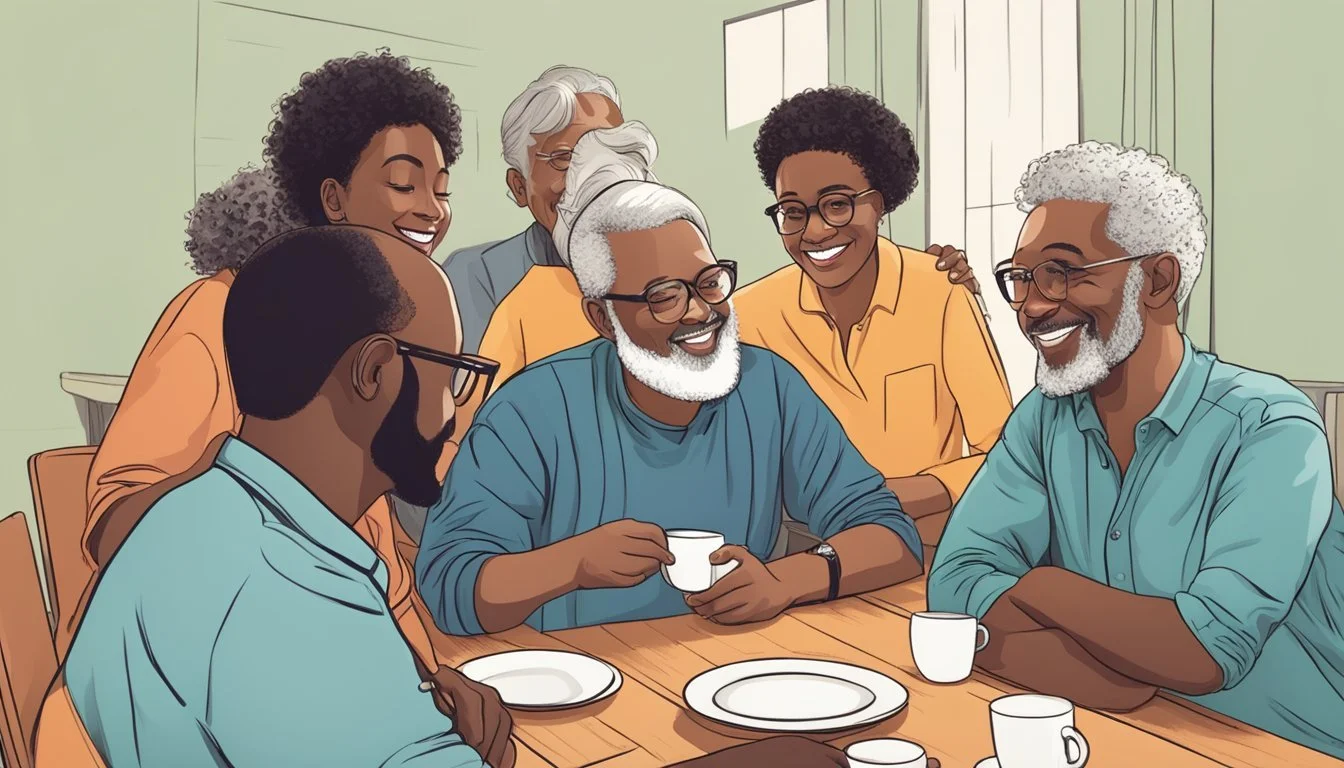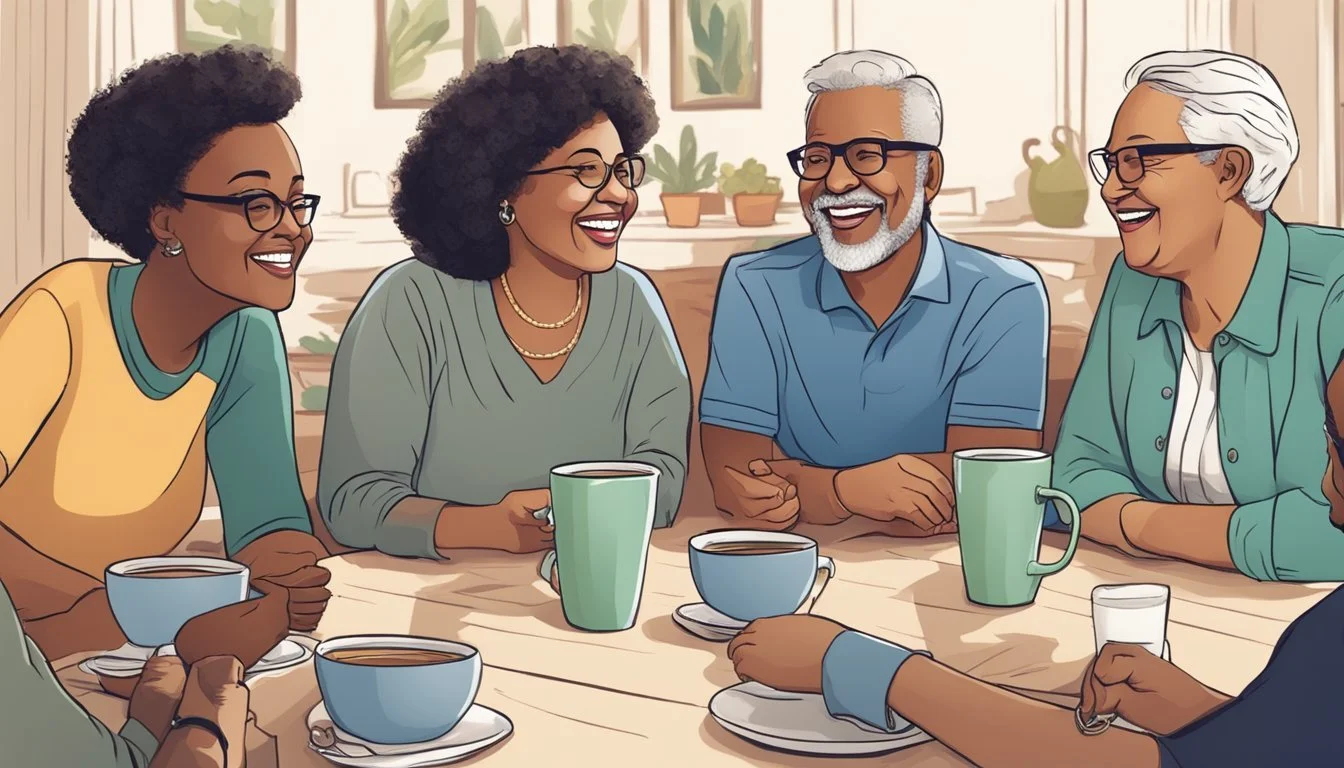6 Tips for Building Meaningful Friendships Later in Life
Strengthen Connections at Any Age
Building friendships later in life can be uniquely fulfilling. At an older age, individuals often have a clearer sense of who they are and what they value in relationships. This can lead to more meaningful and authentic connections.
One key factor in establishing these friendships is recognizing the importance of shared experiences and mutual support. By understanding and leveraging one's life experiences, individuals can form strong and lasting bonds that enrich their lives and provide a sense of belonging and companionship.
1) Join Community Groups
Joining community groups is a powerful way to build meaningful friendships later in life. Community groups often cater to various interests and demographics, making it easier to find like-minded individuals.
Senior centers frequently offer a variety of activities such as book clubs, game nights, and exercise classes, providing ample opportunities to meet new people. Local organizations and clubs tailored to seniors also host gatherings and events aimed at fostering social connections.
Many community groups focus on common hobbies or interests. Whether it's gardening, painting, or playing a musical instrument, engaging in these activities can lead to organic conversations and connections.
Volunteering is another excellent way to meet people who share similar values. Working together for a cause creates a natural environment for friendships to develop.
It's important to take the first step even if it feels daunting. Sending a message, making a call, or simply showing up to a group event can lead to rewarding social experiences.
For more information on the benefits and suggestions for joining social or community groups, visit this guide for seniors.
2) Attend Social Events
Attending social events can be a powerful way to build meaningful friendships later in life. Events like community gatherings, hobby-based clubs, or local festivals provide opportunities to meet new people with shared interests and values.
He or she can look for events in their local area by checking community boards, social media, or local newspapers. Libraries and community centers often host activities open to the public, offering a variety of ways to engage with others.
It's also beneficial to attend events related to personal hobbies or passions. For instance, joining a book club or participating in a cooking class can connect individuals with others who share similar interests, fostering deeper connections over time.
Engaging in social events doesn't only mean attending large gatherings; smaller, more intimate settings can be equally effective. They might join a small discussion group, take part in a knitting circle, or attend local art shows.
Being consistent and showing up regularly can help build trust and familiarity among participants, further strengthening budding friendships. Initiating conversations and showing genuine interest in others' lives can make a significant difference in forming long-lasting connections.
For those who prefer digital interactions, virtual events and online communities provide alternative ways to engage. Many platforms offer virtual meetups, allowing individuals to connect with like-minded people from the comfort of their home.
3) Take Classes or Workshops
Taking classes or workshops is an excellent way to build meaningful friendships later in life. Local community centers, colleges, and specialized institutions often offer courses in various subjects. These environments provide structured settings where individuals can meet others with similar interests.
Joining a class on a loved subject can help participants find like-minded people. Whether it’s cooking, painting, or a foreign language, shared interests can naturally foster connections. Regular attendance provides opportunities for gradual relationship-building.
Workshops also provide interactive and hands-on experiences. These settings encourage collaboration and communication, breaking down barriers more quickly. Involvement in group activities helps people feel more comfortable opening up and sharing experiences.
Additionally, many workshops and classes meet regularly. This repeated interaction allows friendships to develop more naturally over time. Anticipating regular contact with the same group can enhance feelings of belonging and connection.
By participating in classes or workshops, individuals not only gain new skills but also broaden their social networks. It’s a great strategy for those seeking to expand their social circles in a meaningful way. For more information on this, check out the advice on making the lasting friendships you want.
4) Volunteer for Local Causes
Volunteering for local causes offers a powerful avenue for building meaningful friendships later in life. Engaging in community service allows individuals to meet others who share similar values and interests.
Local charities and community organizations often have a range of opportunities where one can contribute time and skills. Participating in such activities fosters a sense of purpose and camaraderie.
In addition to benefiting the community, volunteering helps individuals develop stronger connections with their neighbors. Attending local events and volunteer activities provides regular opportunities to interact and bond with others.
For those seeking both social interaction and personal fulfillment, committing to causes close to home is a practical step. Community involvement enhances social networks and supports collective well-being.
Research indicates that volunteering can lead to significant social benefits. New friendships and even closer relationships, including potential romances, often emerge from shared volunteer experiences. This is especially true when people engage repeatedly over time.
Many find that the act of giving back enriches not only their lives but also deepens community ties. Volunteering locally is a feasible and impactful way to develop lasting friendships and contribute positively to society.
5) Reconnect with Old Friends
Reconnecting with old friends can be a fulfilling way to build meaningful friendships later in life. These relationships often have a shared history that can make the reconnection process smoother.
Using social media platforms like Facebook, Instagram, and LinkedIn can facilitate this process. Engaging with an old friend’s posts or sending a direct message can signal interest in reestablishing contact.
Planning an in-person meet-up can further solidify the reconnection. Meeting face-to-face can reignite the bond and bring back shared memories. Immediate warmth and genuine affection can help reduce any initial awkwardness that might arise.
Acknowledging past events, especially if the friendship ended abruptly or painfully, is crucial. Addressing unresolved issues with honesty can pave the way for a healthier renewed relationship.
Maintaining the reconnected friendship requires effort. Regular communication and efforts to stay updated on each other’s lives can help keep the relationship strong.
6) Use Social Media Wisely
Social media can be a powerful tool for maintaining and building friendships. Platforms like Facebook and Twitter offer ways to stay in touch with family and friends who are geographically distant.
It's important to be selective about the platforms and communities you engage with. This helps ensure interactions are meaningful and aligned with your interests and values.
Setting clear intentions before logging onto social media can make a difference. For instance, remind yourself to seek positive experiences and connections.
Limiting time spent online is crucial. Prioritize real-life interactions and schedule time to meet friends face-to-face. These connections are often deeper and more meaningful.
Sharing honestly about oneself in online spaces can enhance feelings of well-being and support. This openness can foster closer online relationships.
Lastly, it's essential to be kind and compassionate. Positive interactions build a supportive online community and can lead to lasting friendships.
The Emotional Benefits of Friendships Later in Life
Friendships are crucial as we age, providing significant emotional benefits such as improved mental health and reduced feelings of isolation.
Improved Mental Health
Strong social connections can lead to better mental well-being.
Engaging in meaningful conversations and shared activities can help prevent mental decline. Friends provide acceptance, and this emotional support can lower stress levels. Supportive relationships can also reduce the risk of depression and anxiety.
Regular interaction with friends often leads to a more positive outlook on life. This support system offers a safe space to express feelings and seek advice.
Emotional resilience improves, making it easier to cope with life's challenges. Healthy friendships offer a sense of stability and security, which is essential for mental peace.
Reduced Feelings of Isolation
Friendships play a vital role in reducing loneliness and isolation in later years.
Regular social interactions provide emotional companionship that combats feelings of exclusion. Engaging with friends can help fill the void left by family who may live far away.
Friends encourage participation in social activities, which promotes a sense of belonging. This involvement can foster a community feeling and connectedness.
Having friends to rely on ensures that individuals have someone to share their thoughts and experiences with, making them feel valued and understood. This emotional closeness translates into a more fulfilling life.
Building Friendships Through Common Interests
Finding friends with similar passions can make connections more meaningful. This approach involves actively joining local clubs and online communities to meet like-minded individuals.
Finding Local Clubs and Groups
Joining local clubs and groups that align with your interests can be a fruitful way to make friends. Many community centers, libraries, and recreational facilities offer clubs for various hobbies like reading, hiking, cooking, or gardening.
For example, a person passionate about literature might join a local book club. This provides an opportunity to discuss common interests while forming new friendships. Furthermore, local volunteer groups are excellent places to connect with people who share a commitment to community service.
Engaging in local clubs also offers the advantage of face-to-face interaction. This personal touch can help build deeper connections, as the shared activities allow for regular, meaningful interactions.
Participating in Online Communities
For those who prefer digital interaction or have niche interests, online communities can be incredibly useful. Platforms like Facebook, Reddit, and specialized forums host numerous groups where people can discuss specific interests.
Engaging in these communities requires proactive participation. Posting comments, joining discussions, attending virtual events, and even joining webinars can help foster connections.
Additionally, apps designed for social connections, such as Meetup, help individuals find groups with shared interests, from tech enthusiasts to fitness buffs. This can be particularly helpful for those who may not have access to relevant local groups.
Online platforms offer a convenient way to meet people from diverse backgrounds, enhancing the chance to form lasting friendships.
Tips for Maintaining Long-Distance Friendships
Maintaining long-distance friendships requires consistent communication and using technology to bridge the gap. This section will cover effective ways to remain connected and ensure your bond remains strong despite the miles.
Using Technology to Stay Connected
In an era of smartphones and high-speed internet, using technology is essential to keep up with long-distance friends. Regular video calls can mimic face-to-face interactions, allowing you to see your friend's expressions and build a deeper connection.
Social media platforms like Facebook and Instagram help you stay updated with each other's lives by sharing photos, statuses, and life events. Messaging apps such as WhatsApp can be used for quick texts, voice messages, and even video chats.
Consider online multiplayer games or streaming a show together using services like Netflix Party. These activities create shared experiences that bring you closer. Virtual reality (VR) technology can offer an even more immersive experience, making you feel like you're in the same room.
Scheduling Regular Check-Ins
To keep long-distance friendships strong, it's crucial to schedule regular check-ins. Setting a consistent schedule for calls helps ensure you don't lose touch. This could be weekly video calls or monthly catch-up sessions.
Make a habit of sending messages or emails to keep the communication flowing. Even brief updates can keep the relationship vibrant. Using shared calendars can help coordinate schedules, allowing both parties to plan around each other's availability.
Don't be afraid to set reminders on your phone or calendar to prompt regular communication. This way, even amid busy routines, the friendship remains prioritized. Scheduling visits or vacations together, when possible, can also provide meaningful face-to-face interaction.


